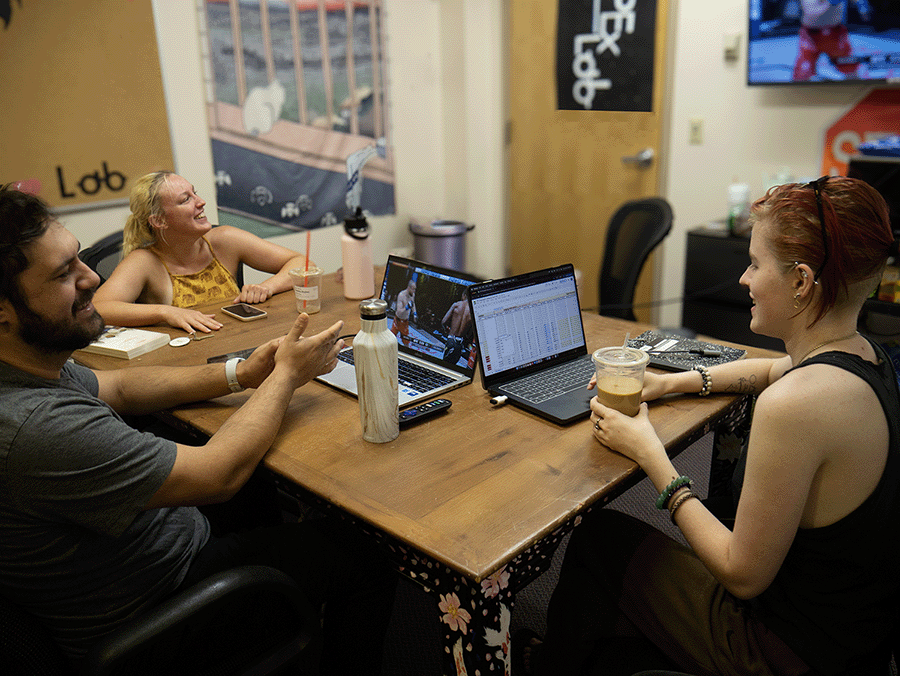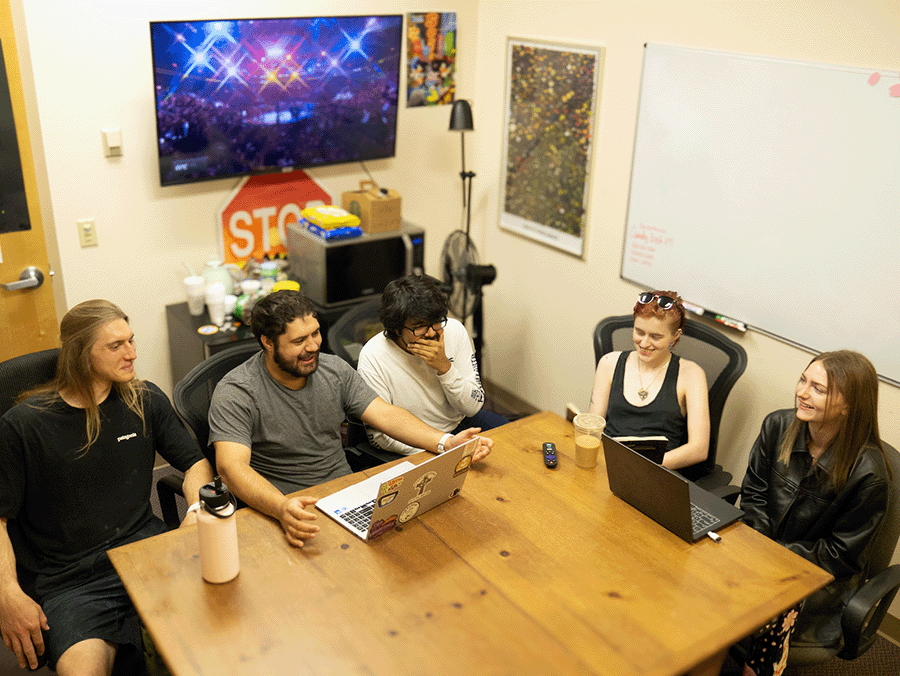
Artificial intelligence is transforming how research is conducted at Fort Lewis College, enabling students and faculty to collect and interpret large, complex datasets. With funding support from the AI Institute’s Elevate AI incubator program, the Social Perception Experimentation (SPEx) Lab is using machine learning tools to streamline data collection and deepen their analysis of human behavior. Led by Associate Professor of Psychology Alex Borgella, the team uses AI technology for faster, more detailed exploration of implicit bias in contexts where decisions happen in seconds.
According to Borgella, Ultimate Fighting Championship (UFC) footage offers a uniquely structured environment to train AI tools and explore implicit bias in the split-second decisions made by referees.
“It’s a really nice, controlled way to look at these biases because the decisions have to be made really quickly – you can’t really say that the referee’s got something out for the fighter due to explicit racial animus,” Borgella said. “It’s literally their job to make that decision in the blink of an eye, which makes it a great window into implicit bias.”
The scope of the dataset is extensive, with thousands of UFC bouts included, each coded for the timing and conditions under which referees choose to end a fight. Before AI integration, compiling and coding this kind of data took months. Now, tasks that once required a year of manual labor can be completed in a week. AI tools help automate everything from data scraping to facial recognition, allowing the team to analyze larger datasets with greater accuracy and speed.
Research assistant Rowan Freeman initially questioned whether AI tools might limit hands-on experience.
“I didn't want it [AI] to take the place of what could be someone learning and someone getting experience or just using their skills. But I don't think it did. I think I was able to still learn things and I still got experience,” she said. “It's surprisingly hands on. I was still very involved while using it. I think it provided us a tool and made the research more accessible.”
Her work with Python (a high-level programming language) was greatly facilitated with AI, which helped the team scrape data from thousands of UFC fights. This programming included an AI facial recognition tool, which scraped hundreds of photos of athletes and referees to ascertain their perceived racial affiliations.
AI has become essential to the lab’s ability to update and maintain this dataset. What once took a year to complete can now be done in a week with the support of AI and automation tools.
“Rowan programmed this entire script using AI to scrape data at a degree that I've never seen in the four years I've been doing this project,” Borgella said. “It took her about a week to figure it out, which is crazy considering she had no experience with Python whatsoever.”
Their preliminary findings suggest that referees take longer to intervene after Black, Latine, and other athletes of color have been knocked unconscious or rendered unable to defend themselves, raising concerns about athlete safety and equity. The team’s next step to build on this work will be to utilize AI tools to automatically update the dataset with new UFC bouts and to add variables such as betting odds and tattoo coverage. These additional data points will help explore how other aspects of appearance and perception may shape referee behavior, combining human insight with advanced technical tools supported by the Elevate AI grant.
“This funding with AI in mind specifically is really going to be the game changer,” Borgella said. “It’s transforming the way we do our work.”
By combining rigorous psychological research with cutting-edge AI tools, Borgella’s SPEx Lab is modeling how technology can be applied to meaningful, real-world questions. The project supports Fort Lewis College’s mission to promote equity, innovation, and experiential learning through faculty-led research that brings students directly into the heart of scientific inquiry.

Visit the SPEx Lab website to learn more about their research projects.